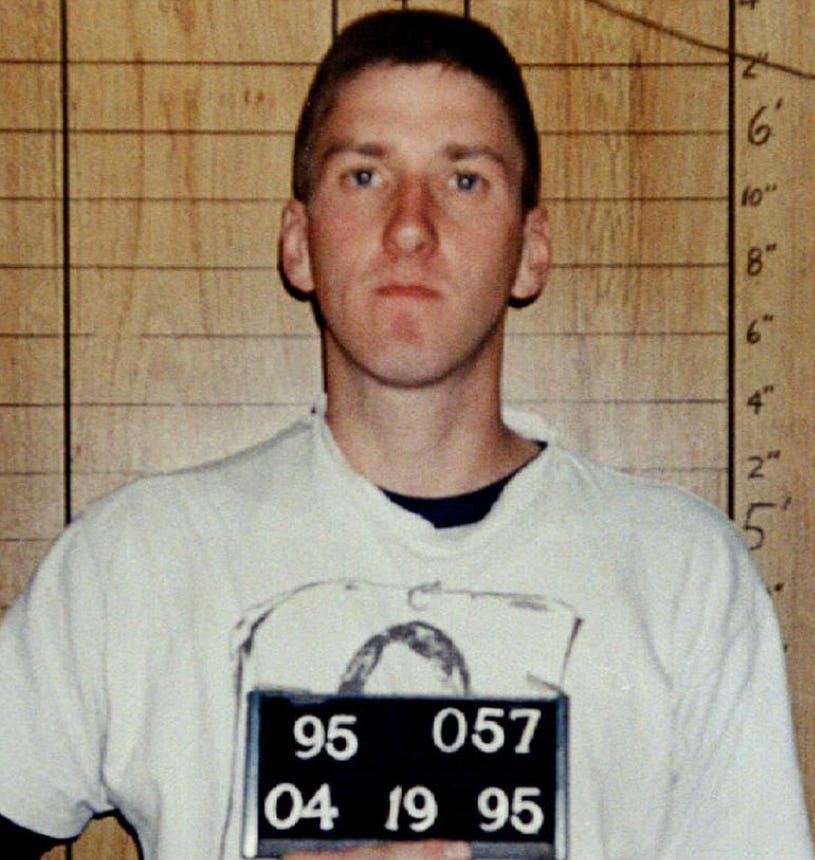
On January 6, 2021, thousands of Trump supporters, enraged by waves of misinformation and outright lies, attacked the federal government. They sought to prevent the counting of electoral votes that would mark Democrat Joe Biden’s victory—and incumbent President Donald Trump’s loss—in the 2020 election. The crowd called for Vice President Mike Pence’s death by hanging, and a noose had been prepared on the Capitol grounds. Pence’s offense was that he had refused to stop the count, an act he correctly understood as illegal and unconstitutional. Informed of this turn of events by an aide, Cassidy Hutchinson, Trump’s chief of staff, shrugged. “The President thinks he deserves it,” Mark Meadows allegedly responded about the threat to Pence’s life.
Trump’s people had long known that his supporters were dangerous. On social media platforms like Gab, Parler, and Telegram, partisans had been calling for blood since election night. Armed men had been arrested in downtown Washington on the night of January 5. And at the rally that preceded the insurrection, the Secret Service and other law enforcement agencies were aware that a large portion of the almost exclusively white crowd, many of whom elected not to pass through the metal detectors that are standard at all events featuring the President, was heavily armed.
Many of us glued to our televisions on January 6 were shocked and horrified, partly because the conspiracy to overthrow the election had infected the government more broadly. Sitting Republican politicians egged the crowd on with lies and fist pumps.
But if we were shocked, we were not surprised. The last four years of rising right-wing populism in the United States had led to this moment. It wasn’t just that the Trump presidency was authoritarian and had produced a spike in visible white supremacism. The former President also issued dark warnings throughout the 2020 campaign season about what his partisans might do if the election, as he put it, was “stolen.” These utterances became more sinister as Trump fought to recapture, through fraudulent means, an election he had lost.
But former prosecutor, legal analyst, and journalist Jeffrey Toobin saw the link between past and present in the tear gas and Trump flags surrounding the Capitol on January 6. These extremist groups—the Proud Boys, the Oath Keepers, and various militias—had a violent history. Before the election, Toobin had noted a foiled plot by members of the so-called Michigan Militia movement to kidnap Democratic Governor Gretchen Whitmer.
It resonated with his memory of an earlier, successful attack on the federal government.
The event Toobin recalled was, at the time, just as shocking as January 6. On April 19, 1995, Desert Storm veteran, passionate gun enthusiast, white supremacist, and anti-government crusader Timothy McVeigh drove a Ryder van packed with homemade explosives to the Alfred P. Murrah Federal Building in Oklahoma City, lit the fuse, and hurried away.
The explosion ripped off the front of the building, severing a crucial pillar and causing a third of the structure to collapse in seven seconds. Glass, concrete, and steel became shrapnel, ripping into and burying the humans inside. It was the worst mass casualty event in American history: 168 people died that day, including 19 children in the daycare at the front of the building, and 680 were wounded. Subsequently, Toobin covered the trial held in Denver, Colorado. While McVeigh was not connected to any organization, his confederate—Terry Nichols—was associated with the Michigan militia.
McVeigh’s trial contained a wealth of information about a culture of guns, violence, and conspiracy that had propelled McVeigh, and Nichols, forward to commit such a horrible act. It re-introduced Americans to the notion that political terrorism isn’t foreign but begins at home. As Jeff Toobin watched the events of January 6, 2021, the narrative that McVeigh’s actions and trial had revealed in the mid-1990s started to look less like an isolated historical event than a vision of the future: armed American citizens fueled by conspiracy theories, trying to topple their government.
And he began working on the book we are discussing in this episode, Homegrown: Timothy McVeigh and the Rise of Right-Wing Extremism (Simon & Schuster, 2023.)
You can download this podcast here or subscribe for free on Apple iTunes, Spotify, Google Podcasts, or Soundcloud. And if you liked this episode, please join us!
Program notes:
The sounds of January 6, 2021, with which I begin the episode, can be found here, courtesy of The Telegraph.
The exchange between White House aide Cassidy Hutchinson and Mark Meadows was part of her testimony to the Special Select Committee to investigate January 6.
Congresswoman Liz Cheney’s remarks on June 28, 2022, were published online by the Washington Post. You can listen to the full hearing here.
CNN reporters Christina Carrega, Veronica Stracqualursi, and Josh Campbell covered the arrest of 13 members of the Michigan Militia for plotting to kidnap Democratic Governor Gretchen Whitmer on October 8, 2020.
Jeff and I both mention the vital work of historian Kathleen Belew on white supremacy and the formation of violent, anti-government militias in the post-Vietnam United States, Bring the War Home: The White Power Movement and Paramilitary America (Harvard University Press, 2018.)
Jeff distinguishes between Timothy McVeigh and a true “lone wolf” killer, the recently deceased Unabomber Ted Kaczynski.
Jeff also notes the importance of right-wing radio—Bill Cooper and Rush Limbaugh in particular—to McVeigh’s radicalization and his belief in political conspiracy theories. Listeners wanting to learn more about this phenomenon should read Nicole Hemmer’s Partisans: The Conservative Revolutionaries Who Remade American Politics in the 1990s (Basic Books, 2022.)
Claire and Jeff discuss the centrality of William Luther Pierce’s The Turner Diaries (1978) to McVeigh’s worldview and the book’s role as a map for going to war with the federal government. You can read more about this widely-circulated racist and antisemitic right-wing text here.
Claire mentioned FreeRepublic.com, an early conservative social media site that incubated Clinton conspiracy theories. You can read more about the site’s long history as a conservative hub here.
Jeff points to the importance of the 1993 stand-off between the federal government and the Branch Davidian sect in Waco, Texas in shifting Timothy McVeigh to an act of anti-government violence.
McVeigh was also angry about the 1994 federal ban on semi-automatic weapons steered through Congress by then-Senator Joseph R. Biden.
Jeff discussed the role of the Oklahoma City bombing in expanding the victims’ rights movement: his colleague at The New Yorker, Jill Lepore, wrote about this connection in 2018.







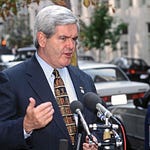
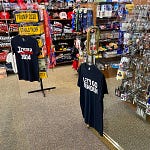
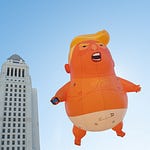
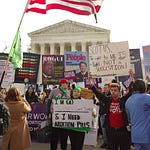
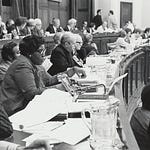

Share this post